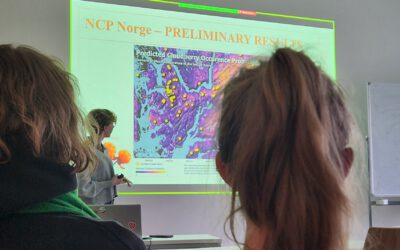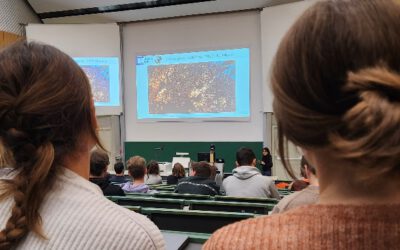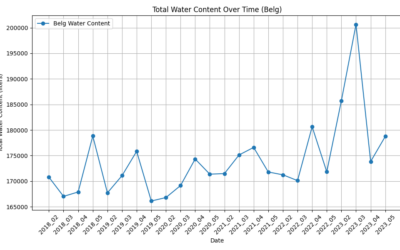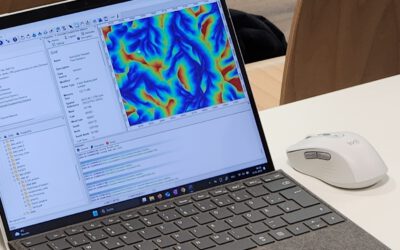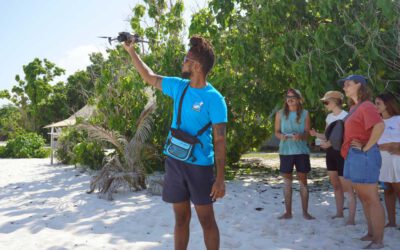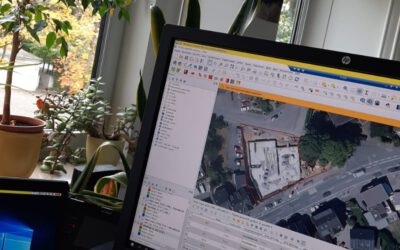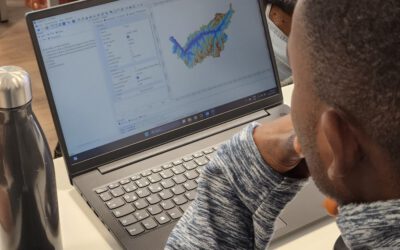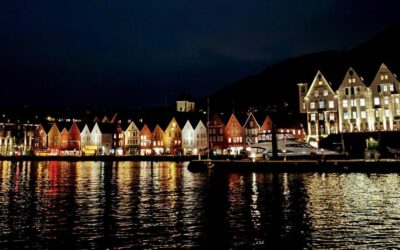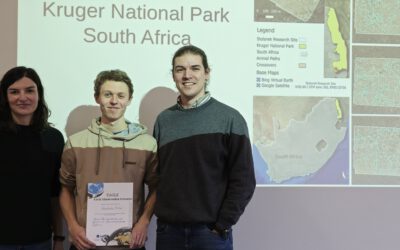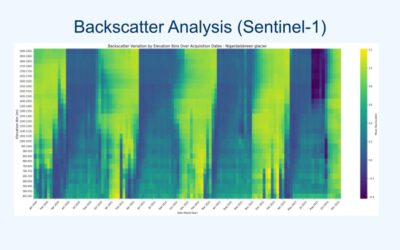Aim
In this seminar, we cover most aspects of remote sensing based assessment of Land Surface Dynamics. Topics such as snow cover dynamics, water body dynamics, forest cover and further vegetation dynamics, urbanization dynamics, coastal dynamics, or dynamics of geophysical parameters such as land surface temperature or selected indices will be addressed. In this contexts we look at opportunities arising from optical-, multi-spectral- and radar sensors, as well as thermal imagery. Data availability and access, as well as typical software tools for the handling of multispectral data or time-series analyses will be addressed as well. The course will consist of a theoretical part and a practical part, where the theory consists of a seminar (written seminar and presentation on a topic to be chosen from a list of available topics), and where the practical will consist of data processing examples.
Content
Topics cover most aspects of remote sensing based assessment of Land Surface Dynamics. Topics such as snow cover dynamics, water body dynamics, forest cover and further vegetation dynamics, urbanization dynamics, coastal dynamics, or dynamics of geophysical parameters such as land surface temperature or selected indices will be addressed. We adress questions such as climate change induced shifts of snow or rainy seasons, look at patterns of forest loss and degradation over time, analyze urbanization patterns and impacts of these processes on the natural environment, and assess changes in coastal morphology. Sensors in focus will be the ones allowing for long time series analyses, such as AVHRR, MODIS, ENVISAT, Landsat, TerraSAR-X, and the Sentinel Satellites.
Coding
Software
Techniques
Content
General Course News and Updates
Mapping NCPs in Norway: An Internship Presentation by Sonja Maas
On January 28, 2025, Sonja Maas delivered an insightful presentation on her internship project titled "Mapping Ecosystem Services in Norway." Hosted by the University of Bergen, this internship focused on the critical role that nature plays in supporting human...
Our Eagles Soar in Remote Sensing: A Look Back at Their Successful Scientific Presentation Course
We are thrilled to share the amazing achievements of our talented students who recently completed their scientific presentation course with flying colors. Our eagles had the exciting opportunity to introduce over 100 BSc students to the world of remote sensing,...
EAGLE Internship Presentation “Effect of Semicircular Bunds for Soil moisture conservation in Ethiopia”
On January 28, 2025, Suriya Elango will present his internship on "Effect of Semicircular Bunds for Soil moisture conservation in Ethiopia" at 12:00 in seminar room 3, John-Skilton-Str. 4a. From the abstract: This study assessed the impact of semi-circular soil...
Empowering Future Earth Observation Experts! 🌍
At EAGLE, our Earth Observation students are diving deep into the fascinating world of geospatial analysis! Through hands-on training, they master cutting-edge algorithms and techniques to address pressing environmental challenges such as Georisk Assessment:...
Marlene and Anna did their internship with Nature Seychelles
In a collaboration that highlights the intersection of technology and ecological preservation, Marlene Bauer and Anna Bischof, EAGLE M.Sc. students in Earth Observation, have engaged in a significant internship with Nature Seychelles. Their tenure on the scenic island...
EAGLE Internship Presentation “Earth Observation for Construction Statistics” at the Federal Agency for Cartography and Geodesy”
On January 28, 2025, Georg Starz will present her internship on "Earth Observation for Construction Statistics (BKG, Frankfurt)" at 12:15 in seminar room 3, John-Skilton-Str. 4a. From the abstract: The lack of affordable housing, especially in urban areas, is...
Empowering Students with SAGA GIS for Environmental Applications
At EAGLE Earth Observation, we are committed to equipping our students with the tools and knowledge needed to excel in the field of environmental science. As part of this effort, our students are exploring the power of various scientific open-source software packages...
EAGLE Internship Presentation “Mapping Ecosystem Services in Norway”
On January 28, 2025, Sonja Maas will present her internship on " Mapping Ecosystem Services in Norway" at 13:00 in seminar room 3, John-Skilton-Str. 4a. From the abstract: Nature plays an important role in human well-being by providing essential services such as the...
Successful Master Thesis Defense by Konstantin Müller
On January 14th, Konstantin Müller successfully defended his master’s thesis titled "Animal Path Segmentation and Analysis via Generalized Deep Neural Network Regression". Supervised by Jakob Schwalb-Willmann and Dr. Mirjana Bevanda, the presentation was delivered to...
EAGLE Internship Presentation “Glacier Surface Dynamics and Snowline Analysis Using Remote Sensing Data”
On January 21, 2025, Daria Ushakova will present her internship on "Glacier Surface Dynamics and Snowline Analysis Using Remote Sensing Data" at 13:00 in seminar room 3, John-Skilton-Str. 4a. From the abstract: This internship focused on analysing glacier surface...

